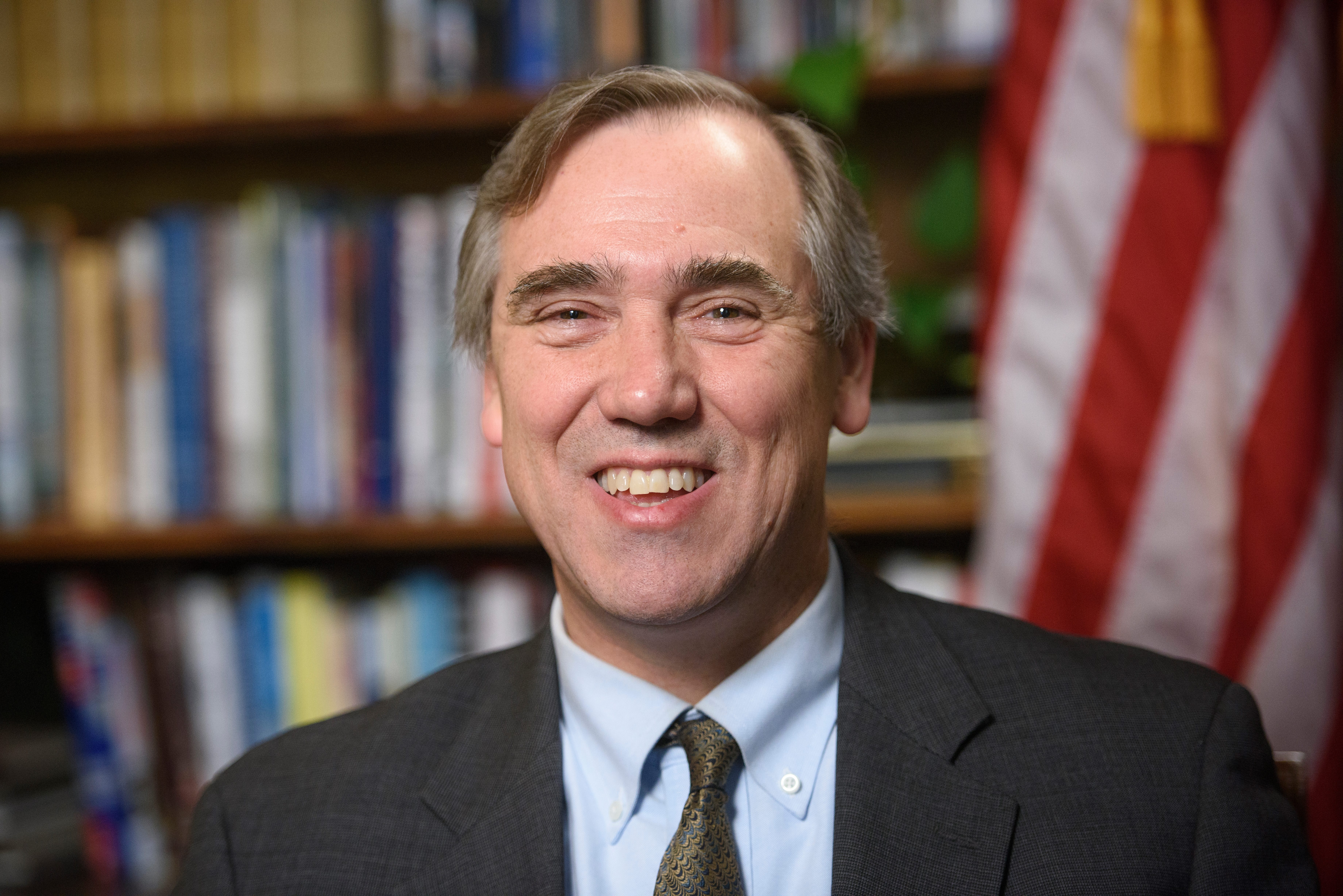![Sen. Jeff Merkley on what needs to happen to bring the Democratic Party together after the fierce primary battle between Hillary Clinton and Bernie Sanders [video : 84594700]](http://videos.usatoday.net/Brightcove2/29906170001/2016/05/29906170001_4902087333001_Merkley.jpg?pubId=29906170001)
WASHINGTON — Amid rising concerns about a deepening Democratic divide, one of Sen. Bernie Sanders' top supporters said party leaders and the Hillary Clinton campaign must give backers of the Vermont senator a chance to be heard at the national convention this summer if they expect the party to unite behind her.
"Certainly, there is an opportunity here for folks to come together, but a possibility that they won't," Oregon Sen. Jeff Merkley, the only sitting U.S. senator to have endorsed Sanders, told Capital Download Thursday.
While Merkley said he believes Democrats will come together behind the eventual nominee, he didn't rule out the possibility of demonstrations at the Philadelphia convention in July like those that rocked the Nevada State Democratic convention in Las Vegas Saturday.
![Capital Download - Conversations with Washington's biggest newsmakers [oembed : 84589030] [oembed : 84589030] [oembed : 84589030] [oembed : 84589030] [oembed : 84589030] [oembed : 84589030] [oembed : 84589030] [oembed : 84589030] [oembed : 84589030] [oembed : 84589030]](/Portals/_default/Skins/PrestoLegacy/CommonCss/images/smartembed.png)
"If any of the ideas that the losing team puts forward are not given any chance to be aired or be weighed in on or be voted on, will that team feel offended?" he said in response to what he noted was a hypothetical question. "Yes, I think the Clinton team, if they were to lose, would feel that way, and I think the Sanders team would feel that way, and that's why I'm emphasizing that it would be a big mistake to try to suppress any conversation about ideas."
As the highest-ranking elected official backing Sanders, Merkley, 59, could provide a crucial link between the rival campaigns as the primary season comes to a close.
Democratic Senate colleagues have contacted him to express fears that Sanders' aggressive campaigning would hurt Clinton's prospects in a general-election against Republican Donald Trump, Merkley acknowledged in the interview with USA TODAY's weekly video newsmaker series. "Folks are concerned that, as we go into this final set of weeks, that it's important that we focus on the issues."
But he also echoed complaints from Sanders' supporters that the primary campaign has been rigged against him by the Democratic establishment.
"I have concerns about a fundamental bias that comes from the fact that Secretary Clinton has such deep ties to the Democratic Party over such a long period of time," he said. "I'm asking the DNC, given that, to do everything you can to make this an absolutely fair convention. Make sure that the Sanders team is well represented on the important committees — the Platform Committee, the Rules Committee. That's important. If you want to bring people together, they have to feel heard and they have to feel respected and well-treated."
He said it would be "an enormous mistake" to try to block consideration of planks in the platform or proposals for changes in party rules. Sanders has railed in particular against the role of superdelegates — elected and party officials who are automatically delegates to the convention — and to "closed" primaries in which independents aren't allowed to vote.
While Sanders has drawn huge crowds and won contests in 20 states, including in Oregon Tuesday, Clinton is expected to clinch the nomination on the last big primary day June 7, when California, New Jersey and other states vote. The final contest is on June 14 in the District of Columbia.
Sanders hasn't made it clear at what point he might wind down his campaign, but Merkley said the process of reconciliation shouldn't wait for the convention.
"I believe that once a candidate has a majority of pledged delegates — so not superdelegates, but the pledged delegates — (and) has a majority of the votes cast, that the party will have made its decision and we need to do the hard work of coming together," he said. "Should Secretary Clinton win these key categories, I think the conversation will begin about how to bring the sides together so we can go into the convention united, go out of the convention even more united, and make sure that this charlatan, this self-promoting charlatan, Donald Trump, does not become president."
If Sanders doesn't win the nomination, he would return to the Senate with his stature enhanced, Merkley predicted.
"Should he not be the nominee, when he comes back, he's going to come back having done something that no other senator believed was possible. When he launched his campaign, people anticipated, and I think Bernie Sanders anticipated, that it would have a modest effect at the edge, but not one that necessarily took fire," Merkley said. Sanders' success "definitely should encourage every senator up here to think about why it is what Bernie Sanders says to the public is gaining such following. ...
"We need to capture and understand that sentiment up here on Capitol Hill."
![USA TODAY | Facebook [oembed : 84593140] [oembed : 84593140] [oembed : 84593140] [oembed : 84593140] [oembed : 84593140] [oembed : 84593140]](/Portals/_default/Skins/PrestoLegacy/CommonCss/images/smartembed.png)


![XXX SENATOR JEFF MERKLEY FOR A CAPITAL DOWNLOAD. _JMG_27560.JPG USA DC [image : 84588668]](http://www.gannett-cdn.com/media/2016/05/19/USATODAY/USATODAY/635992542965421819-XXX-SENATOR-JEFF-MERKLEY-FOR-A-CAPITAL-DOWNLOAD.-81995593.JPG)
![AP DEM 2016 SANDERS A ELN USA PA [image : 84589242]](http://www.gannett-cdn.com/media/2016/05/19/USATODAY/USATODAY/635992549013580589-AP-DEM-2016-SANDERS-81468975.JPG)
